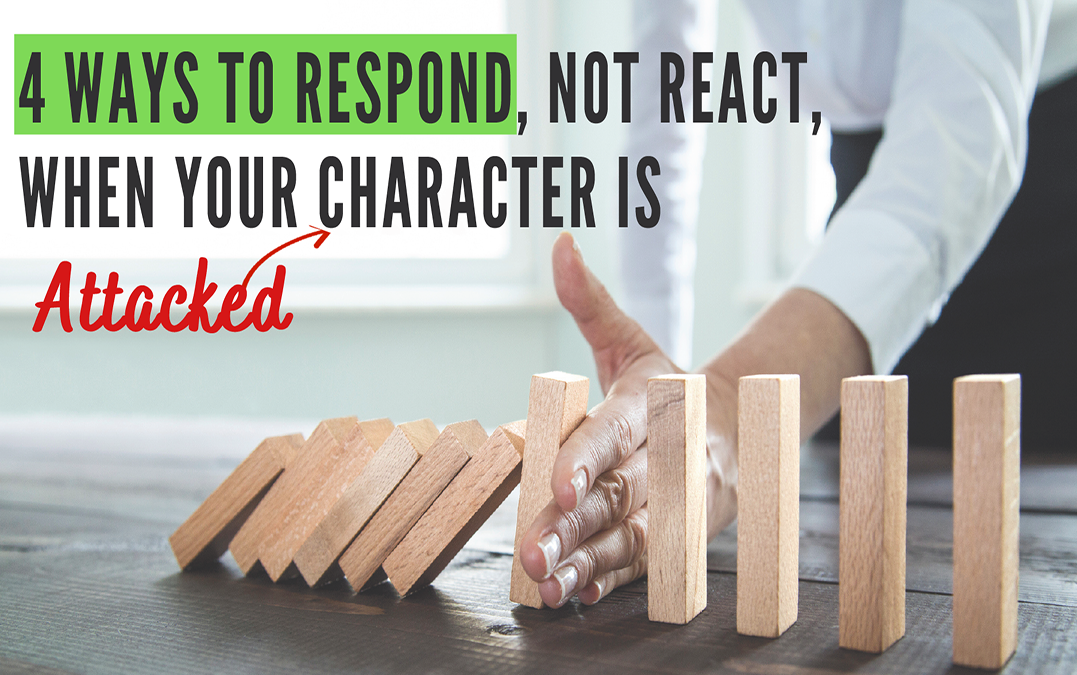
8 Books to Add to Your Leadership Library this Holiday Season
To be an effective leader, you need experience, business acumen, and emotional intelligence. You can build these through years of trial-and-error on the job, or you can accelerate your learning and growth through reading. Reading helps shape your views and learn through others’ experiences. This becomes crucial when your work shapes your organization’s culture, and, ultimately, its performance. This holiday season offers an excellent opportunity to build your leadership library.
Whether you’re interested in learning from history, in building new skills to match 21st century challenges, or get inspired by stories of human interest, here are 8 titles to add to pick up this holiday season.
1. High Conflict: Why We Get Trapped and How We Get Out by Amanda Ripley
 What it’s about: When we are baffled by the insanity of the “other side”—in our politics, at work, or at home—it’s because we aren’t seeing how the conflict itself has taken over. That’s what “high conflict” does. It’s the invisible hand of our time. And it’s different from the useful friction of healthy conflict. That’s good conflict, and it’s a necessary force that pushes us to be better people.
What it’s about: When we are baffled by the insanity of the “other side”—in our politics, at work, or at home—it’s because we aren’t seeing how the conflict itself has taken over. That’s what “high conflict” does. It’s the invisible hand of our time. And it’s different from the useful friction of healthy conflict. That’s good conflict, and it’s a necessary force that pushes us to be better people.
High conflict, by contrast, is what happens when discord distills into a good-versus-evil kind of feud, the kind with an “us” and a “them”. In this state, the normal rules of engagement no longer apply. The brain behaves differently. We feel increasingly certain of our own superiority and, at the same time, more and more mystified by the other side. New York Times bestselling author and award-winning journalist Amanda Ripley investigates how good people get captured by high conflict—and how they break free.
Why pick it up: You’ll learn that people do escape high conflict. Individuals—even entire communities—can short-circuit the feedback loops of outrage and blame, if they want to. This is a mind-opening new way to think about conflict that will transform how we move through the world.
2. The Quiet Zone: Unraveling the Mystery of a Town Suspended in Silence by Stephen Kurczy
 What it’s about: Deep in the Appalachian Mountains lies the last truly quiet town in America. Green Bank, West Virginia, is a place at once futuristic and old-fashioned. It’s home to the Green Bank Observatory, where astronomers search the depths of the universe using the latest technology, while schoolchildren go without WiFi or iPads. With a ban on all devices emanating radio frequencies that might interfere with the observatory’s telescopes, Quiet Zone residents live a life free from constant digital connectivity. But a community that on the surface seems idyllic is a place of contradictions, where the provincial meets the seemingly supernatural and quiet can serve as a cover for something darker.
What it’s about: Deep in the Appalachian Mountains lies the last truly quiet town in America. Green Bank, West Virginia, is a place at once futuristic and old-fashioned. It’s home to the Green Bank Observatory, where astronomers search the depths of the universe using the latest technology, while schoolchildren go without WiFi or iPads. With a ban on all devices emanating radio frequencies that might interfere with the observatory’s telescopes, Quiet Zone residents live a life free from constant digital connectivity. But a community that on the surface seems idyllic is a place of contradictions, where the provincial meets the seemingly supernatural and quiet can serve as a cover for something darker.
Why pick it up: The Quiet Zone is a remarkable work of investigative journalism—at once a stirring ode to place, a tautly-wound tale of mystery, and a clarion call to reexamine the role technology plays in our lives.
3. Numbers Don’t Lie: 71 Stories to Help Us Understand the Modern World by Vaclav Smil
 What it’s about: Vaclav Smil’s mission is to make facts matter and making sense of our world. In Numbers Don’t Lie, Smil answers questions such as: What’s worse for the environment—your car or your phone? How much do the world’s cows weigh (and what does it matter)? And what makes people happy? This is probably the most information Vaclav has ever put in a book, and yet it’s by far the most digestible. Each chapter is just a couple pages long and covers one of the 71 facts mentioned in the title.
What it’s about: Vaclav Smil’s mission is to make facts matter and making sense of our world. In Numbers Don’t Lie, Smil answers questions such as: What’s worse for the environment—your car or your phone? How much do the world’s cows weigh (and what does it matter)? And what makes people happy? This is probably the most information Vaclav has ever put in a book, and yet it’s by far the most digestible. Each chapter is just a couple pages long and covers one of the 71 facts mentioned in the title.
Why pick it up: Packed with fascinating information and memorable examples, Numbers Don’t Lie reveals how the US is leading a rising worldwide trend in chicken consumption, that vaccination yields the best return on investment, and why electric cars aren’t as great as we think (yet). Urgent and essential, with a mix of science, history, and wit—all in bite-sized chapters on a broad range of topics—Numbers Don’t Lie inspires readers to interrogate what they take to be true.
4. Flying Blind: The 737 Max Tragedy and the Fall of Boeing by Peter Robison
 What it’s about: From the award-wining journalist, a gripping, suspenseful behind-the-scenes look at the corporate dysfunction—the ruthless cost-cutting, toxic workplaces, and cutthroat management—that contributed to one of the worst tragedies in modern aviation. Drawing from exclusive interviews with current and former employees of Boeing and the FAA; industry executives and analysts; and family members of the victims, Flying Blind reveals how a broken corporate culture paved the way for catastrophe. It shows how in the race to beat the competition and reward top executives, Boeing skimped on testing, pressured employees to meet unrealistic deadlines, and convinced regulators to put planes into service without properly equipping them or their pilots for flight. And it examines how the company, once a treasured American innovator, became obsessed with the bottom line, putting shareholders over customers, employees, and communities.
What it’s about: From the award-wining journalist, a gripping, suspenseful behind-the-scenes look at the corporate dysfunction—the ruthless cost-cutting, toxic workplaces, and cutthroat management—that contributed to one of the worst tragedies in modern aviation. Drawing from exclusive interviews with current and former employees of Boeing and the FAA; industry executives and analysts; and family members of the victims, Flying Blind reveals how a broken corporate culture paved the way for catastrophe. It shows how in the race to beat the competition and reward top executives, Boeing skimped on testing, pressured employees to meet unrealistic deadlines, and convinced regulators to put planes into service without properly equipping them or their pilots for flight. And it examines how the company, once a treasured American innovator, became obsessed with the bottom line, putting shareholders over customers, employees, and communities.
Why pick it up: By Bloomberg investigative journalist Peter Robison, who covered Boeing as a beat reporter during the company’s fateful merger with McDonnell Douglas in the late ‘90s, this is the story of a business gone wildly off course. At once riveting and disturbing, it shows how the iconic company fell prey to a win-at-all-costs mentality, threatening an industry and endangering countless lives.
5. The 1619 Project: A New Origin Story by Nikol Hannah-Jones
 What it’s about: The New York Times Magazine’s award-winning “1619 Project” issue reframed our understanding of American history by placing slavery and its continuing legacy at the center of our national narrative. This new book substantially expands on that work, weaving together eighteen essays that explore the legacy of slavery in present-day America with thirty-six poems and works of fiction that illuminate key moments of oppression, struggle, and resistance. The essays show how the inheritance of 1619 reaches into every part of contemporary American society, from politics, music, diet, traffic, and citizenship to capitalism, religion, and our democracy itself.
What it’s about: The New York Times Magazine’s award-winning “1619 Project” issue reframed our understanding of American history by placing slavery and its continuing legacy at the center of our national narrative. This new book substantially expands on that work, weaving together eighteen essays that explore the legacy of slavery in present-day America with thirty-six poems and works of fiction that illuminate key moments of oppression, struggle, and resistance. The essays show how the inheritance of 1619 reaches into every part of contemporary American society, from politics, music, diet, traffic, and citizenship to capitalism, religion, and our democracy itself.
Why pick it up: This is a book that speaks directly to our current moment, contextualizing the systems of race and caste within which we operate today. It reveals long-glossed-over truths around our nation’s founding and construction—and the way that the legacy of slavery did not end with emancipation, but continues to shape contemporary American life.
6. Pastoral Song: A Farmer’s Journey by James Rebanks
 What it’s about: Hailed as “a brilliant, beautiful book” by the Sunday Times (London), Pastoral Song is the story of an inheritance: one that affects us all. It tells of how rural landscapes around the world were brought close to collapse, and the age-old rhythms of work, weather, community and wild things were lost. And yet this elegy from the northern fells is also a song of hope: of how, guided by the past, one farmer began to salvage a tiny corner of England that was now his, doing his best to restore the life that had vanished and to leave a legacy for the future.
What it’s about: Hailed as “a brilliant, beautiful book” by the Sunday Times (London), Pastoral Song is the story of an inheritance: one that affects us all. It tells of how rural landscapes around the world were brought close to collapse, and the age-old rhythms of work, weather, community and wild things were lost. And yet this elegy from the northern fells is also a song of hope: of how, guided by the past, one farmer began to salvage a tiny corner of England that was now his, doing his best to restore the life that had vanished and to leave a legacy for the future.
Why pick it up: This is a book about what it means to have love and pride in a place, and how, against all the odds, it may still be possible to build a new pastoral: not a utopia, but somewhere decent for us all.
7. Cutting the Cord: The Cell Phone Has Transformed Humanity by Martin Cooper
 What it’s about: While at Motorola in the 1970s, wireless communications pioneer Martin Cooper invented the first handheld mobile phone. But the cellphone as we know it today almost didn’t happen. Now, in Cutting the Cord, Cooper takes readers inside the stunning breakthroughs, devastating failures, and political battles in the quest to revolutionize—and control—how people communicate. It’s a dramatic tale involving brilliant engineers, government regulators, lobbyists, police, quartz crystals, and a horse.
What it’s about: While at Motorola in the 1970s, wireless communications pioneer Martin Cooper invented the first handheld mobile phone. But the cellphone as we know it today almost didn’t happen. Now, in Cutting the Cord, Cooper takes readers inside the stunning breakthroughs, devastating failures, and political battles in the quest to revolutionize—and control—how people communicate. It’s a dramatic tale involving brilliant engineers, government regulators, lobbyists, police, quartz crystals, and a horse.
Industry skirmishes sparked a political war in Washington to prevent a monopolistic company from dominating telecommunications. The drama culminated in the first-ever public call made on a handheld, portable telephone—by Cooper himself.
Why pick it up: The story of the cell phone has much to teach about innovation, strategy, and management. But the story of wireless communications is far from finished. This book also relates Cooper’s vision of the future. From the way we work and the way children learn to the ways we approach medicine and healthcare, advances in the cellphone will continue to reshape our world for the better.
8. Stupid Things I Won’t Do When I Get Old by Steven Petrow
 What it’s about: Soon after his 50th birthday, Steven Petrow began assembling a list of “things I won’t do when I get old”—mostly a catalog of all the things he thought his then 70-something-year-old parents were doing wrong. That list, which included “You won’t have to shout at me that I’m deaf,” and “I won’t blame the family dog for my incontinence,” became the basis of this rousing collection of do’s and don’ts, wills and won’ts that is equal parts hilarious, honest, and practical.
What it’s about: Soon after his 50th birthday, Steven Petrow began assembling a list of “things I won’t do when I get old”—mostly a catalog of all the things he thought his then 70-something-year-old parents were doing wrong. That list, which included “You won’t have to shout at me that I’m deaf,” and “I won’t blame the family dog for my incontinence,” became the basis of this rousing collection of do’s and don’ts, wills and won’ts that is equal parts hilarious, honest, and practical.
The fact is, we don’t want to age the way previous generations did. “Old people” hoard. They bore relatives—and strangers—with tales of their aches and pains. They insist on driving long after they’ve become a danger to others (and themselves). They eat dinner at 4pm. They swear they don’t need a cane or walker (and guess what happens next). They never, ever apologize. But there is another way . . .
Why pick it up: In Stupid Things I Won’t Do When I Get Old, Petrow candidly addresses the fears, frustrations, and stereotypes that accompany aging. He offers a blueprint for the new old age, and an understanding that aging and illness are not the same. As he writes, “I meant the list to serve as a pointed reminder—to me—to make different choices when I eventually cross the threshold to ‘old.’”
Question: What books are on your holiday wish list this year?
Driven by the premise that excellence is the result of aligning people, purpose and performance, Center for Executive Excellence facilitates training in leading self, leading teams and leading organizations. To learn more, subscribe to receive CEE News!




